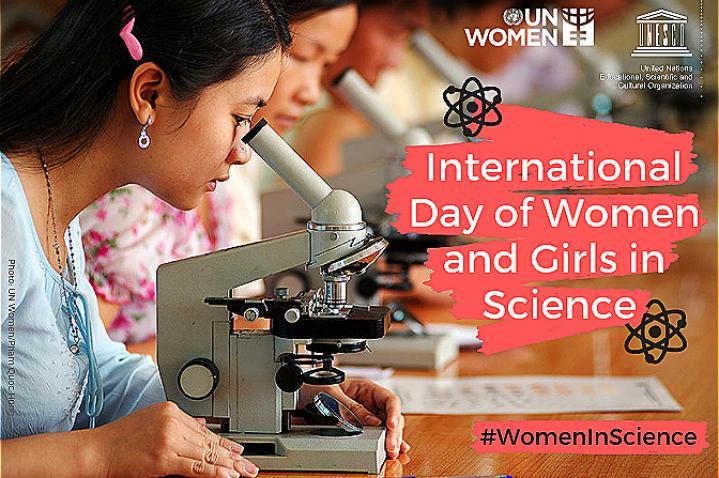- عربي
- 中文
- English
- Français
- Русский
- Español
International Day for Women and Girls in Science 2018
- Ms. Ann Therese Ndong-Jatta, UNESCO Regional Director for Eastern Africa;
- Ms. Amrote Abdella, Regional Director of Microsoft’s 4Afrika Initiative;
- Ms. Hendrina Doroba, Regional Director of the Forum for African Women Educationalists (FAWE);
- Dr. Moses Rugutt, Director-General of the National Commission for Science Technology and Innovation (NACOSTI);
- UN Colleagues,
- Invited guests, women scientists and students
- Ladies and gentlemen,
It is my pleasure to welcome you to the United Nations Office at Nairobi for this event to mark the International Day of Women and Girls in Science.
I am honoured to be with you today.
Let me start by thanking UNESCO and its partners for choosing UNON as the venue for this important celebration. It is very fitting that this event is taking place here at UNON, from where a large number of UN entities are working hard every day to advance implementation of the 2030 Agenda for Sustainable Development – in Kenya, in the region and around the world.
Today, our focus is on the world’s commitment to end bias against women and girls, and the need for greater investment in science technology, engineering and mathematics (STEM) education for all. The objective is to open up more doors and opportunities for women and girls to advance in science, and for the world to benefit from their unique contribution.
This is also the message from the UN Secretary General, Mr. Antonio Guterres.
The global community has continued to try and inspire as well as to engage women and girls in science. Unfortunately, the equality and parity that has been sought for the past 25 years has still not been achieved today. Women and girls continue to not only avoid the sciences but they are also excluded from participating fully in these fields.
Something is certainly not right and there is a need to address the missing link. We must begin to do things differently. This calls for policy changes and commitment at all levels.
This Day was set up by the UN General Assembly in 2015, after the Member States took cognizance of the fact that there is need for a paradigm shift, if women and girls are to achieve full and equal access to, and participation in, science.
Countries need to demonstrate political will to address this pertinent issue -- the gender gap in STEM -- which will have a great impact on their ability to achieve all the Sustainable Development Goals.
Indeed, women have continued to remain a minority in science research and decision-making. This throws a shadow over the world’s efforts to reach the SDGs.
Meaningful progress must start with the rights and dignity of women by nurturing their ingenuity to innovation. Women and girls must be empowered at every level, in learning and research, and from administration to teaching across all scientific fields. Humanity cannot afford to ignore the creative genius of the woman!
As we celebrate this Day, let us call upon Governments to be engaged in enhancing STEM education, and all stakeholders to join hands in promoting the full participation of women and girls in science.
Young women scientists must be provided with mentorship opportunities to assist them to break the glass ceiling in their career development.
And the work of professional women scientists must be given visibility through provision of equal opportunities for their participation and leadership in a broad spectrum of high-level scientific bodies and events.
Ladies and Gentlemen,
Let us use this celebration to focus our attention on what has not been done, and how we can improve on what we are already doing to change the situation. We must ensure equality and parity in science. We must nurture the young and upcoming scientists who are gathered here today.
We must give a voice to the women scientists, some of whom are also with us here today. Let us make a difference for the sake of humanity.
I would like to commend the organisers of this event for selecting a very pertinent theme for this year’s celebration - Equality and Parity in Science for Peace and Development.
Indeed, this theme underscores the inextricable links between all the SDGs.
Peace and sustainable development cannot be achieved without the active participation of women in a critical area like science. We need Equality and Parity in Science for Peace and Development in all our countries.
I wish you very interesting discussions as you celebrate the International Day of Women and Girls in Science 2018.
Thank you for your kind attention.


